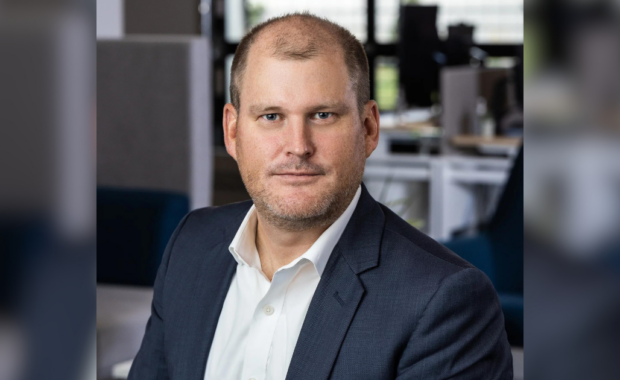Revolutionizing Healthcare: The Transformative Power of AI
May 17, 2024
By Kevin Riddleberger, Co-founder, DispatchHealth

As the co-founder of a pioneering digital health company and a seasoned physician associate, I have navigated the forefront of healthcare innovation over the last decade. Our journey has witnessed both incremental advancements and radical shifts, but none as transformative as the current wave led by Artificial Intelligence (AI). This technological revolution promises to redefine healthcare delivery and management, bringing profound changes that were once the realm of science fiction into today’s clinical practices. The impact on the healthcare society will be bigger than electricity, the computer or the internet by many multiples. Research published in the New England Journal of Medicine last year indicates that generative AI has improved patient outcomes by up to 45% in clinical trials, particularly in the treatment of chronic diseases such as diabetes and heart disease, through personalized medicine and management plans. While a report by McKinsey & Company predicts that generative AI could help reduce healthcare costs in the United States by up to $150 billion annually by 2026 through automation of administrative tasks and optimization of clinical workflows.
Just last year, I highlighted in a thought leadership piece a typical day in the life of a clinician leveraging generative AI models embedded in their daily workflow. Since then we have witnessed an explosion of venture capital in companies to the tune of billions of dollars due to immense impact on healthcare operations and drug discoveries. Generative AI models are crucial for achieving the Quintuple Aim of healthcare, enhancing care quality, provider satisfaction, and patient engagement while reducing costs and improving health populations.
The volume of medical literature published annually is overwhelming, with estimates suggesting it would take decades for a clinician to process a year’s worth of research. We have long surpassed the power of the human brain and need augmentation quickly.
The Expanding Role of AI in Healthcare
AI’s integration into healthcare is set to usher in transformative changes, including the development of personalized treatment plans tailored to individual genetic profiles and lifestyles, and virtual health assistants available 24/7, providing real-time, accurate medical advice. The expectation is that AI will manage over 85% of customer interactions in healthcare by 2025, reducing the need for human intervention and allowing healthcare professionals to focus more on patient care. This shift towards technology-dependent care teams emphasizes AI’s role as a partner in healthcare, enhancing our capabilities to serve and care. While technology won’t replace humans, it will become a more integral member of the care team. The future of care delivery will lie in a technology-dependent care team approach, where healthcare workers focus on their greatest comparative advantages over technology. In the quest for top-of-license care, clinician roles, decision making processes, and workflows will evolve by embedding this transformative technology.
Companies Leading the AI Healthcare Revolution
- Eko Health: Known for its AI-powered cardiac monitoring tools, Eko has developed algorithms that significantly improve the detection of heart conditions in routine screenings, potentially reducing the rates of undiagnosed cardiac issues by up to 30%. Eko recently was awarded by the FDA the first AI to aid heart failure detection during routine check-ups using their stethoscopes.
- Butterfly Network: Their portable ultrasound device, powered by AI, has democratized medical imaging, making it more accessible and affordable. Introducing AI-powered POCUS is proving to increase diagnostic speed and accuracy in point of care settings thus minimizing more expensive imaging studies required.
- Abridge and Nuance These companies are at the forefront of conversational AI, significantly reducing the clerical burden on clinicians, with both platforms now seamlessly integrated into Epic systems. The technologies use AI to transcribe and structure medical conversations during patient visits, which helps in ensuring that crucial information is captured accurately and can be easily referenced later, reducing the 70+ hours of documentation per clinician every month.
- Hippocratic AI: The product is a novel staffing marketplace where companies can “hire” auto-pilot generative AI-powered agents to conduct low-risk, non-diagnostic, patient-facing services to help solve the massive healthcare staffing crisis. The company’s vision is centered around how generative AI can provide super staffing and healthcare abundance and equity in our industry.
- Glass Health: An emerging player, Glass Health uses AI to integrate various data sources to provide a holistic view of patient health, aiding in more comprehensive care planning and clinical decision support at the point of care.
Looking Forward: Embracing the Future of Medicine
AI is a strategy enabler, not a strategy in itself. Effective AI adopters in healthcare will prioritize integrated governance over isolated initiatives, using AI as a tool to support strategic endeavors and to incorporate data as a key competitive asset. While AI presents unprecedented opportunities for advancement, it also brings challenges such as data privacy concerns, the need for robust ethical frameworks to prevent bias, and the importance of maintaining the human touch in medicine. Addressing these issues is crucial as we integrate more AI tools into clinical settings. The American Academy of PAs (AAPA) has recently developed an AI task force to guide future legislation and ensure that the PA profession is safeguarded in future regulatory frameworks, and I am proud to be part of this esteemed group moving forward.
As we prepare for the upcoming annual AAPA conference in Houston, I look forward to engaging with healthcare professionals and leaders to discuss the future of medicine and AI’s role. The opportunity to hear from pioneers like Daniel Kraft, MD and leading a panel discussion on healthcare innovation will further our understanding and implementation of AI technologies.These events at the AAPA conference underscore the vibrant, dynamic nature of our profession and the central role that innovation plays in driving us forward. I am eager to share ideas with fellow thought leaders and continue pushing the boundaries of what is possible in healthcare.
As we stand on the brink of a technological revolution in healthcare, driven by artificial intelligence, our responsibilities are manifold. We must not only embrace AI and its capabilities but also guide its integration thoughtfully and ethically to enhance patient care and improve health outcomes. The promise of AI in healthcare is vast and exciting, and I am optimistic about the transformative changes we are about to witness. Let us step boldly into this future, equipped with knowledge, inspired by innovation, and committed to the betterment of patient care worldwide. Let’s not be afraid but rather be bold and embrace the evolution of technology to advance our industry and our profession.
—
Kevin Riddleberger, PA-C, MBA, is a seasoned healthcare executive devoted to reconstructing our nation’s ailing and scattered healthcare delivery infrastructure into a more viable model. Boasting over two decades of hands-on patient care as an entrepreneur, physician associate and managerial expertise in healthcare, he is deeply committed to revolutionizing the way healthcare is delivered, focusing on technological innovation, procedural enhancements, and quality upgrades. Before co-founding DispatchHealth, Kevin led the clinical solutions and strategic planning division at iTriage, a pioneering company in the consumer mobile health app sector.
Thank you for reading AAPA’s News Central
You have 2 articles left this month. Create a free account to read more stories, or become a member for more access to exclusive benefits! Already have an account? Log in.
